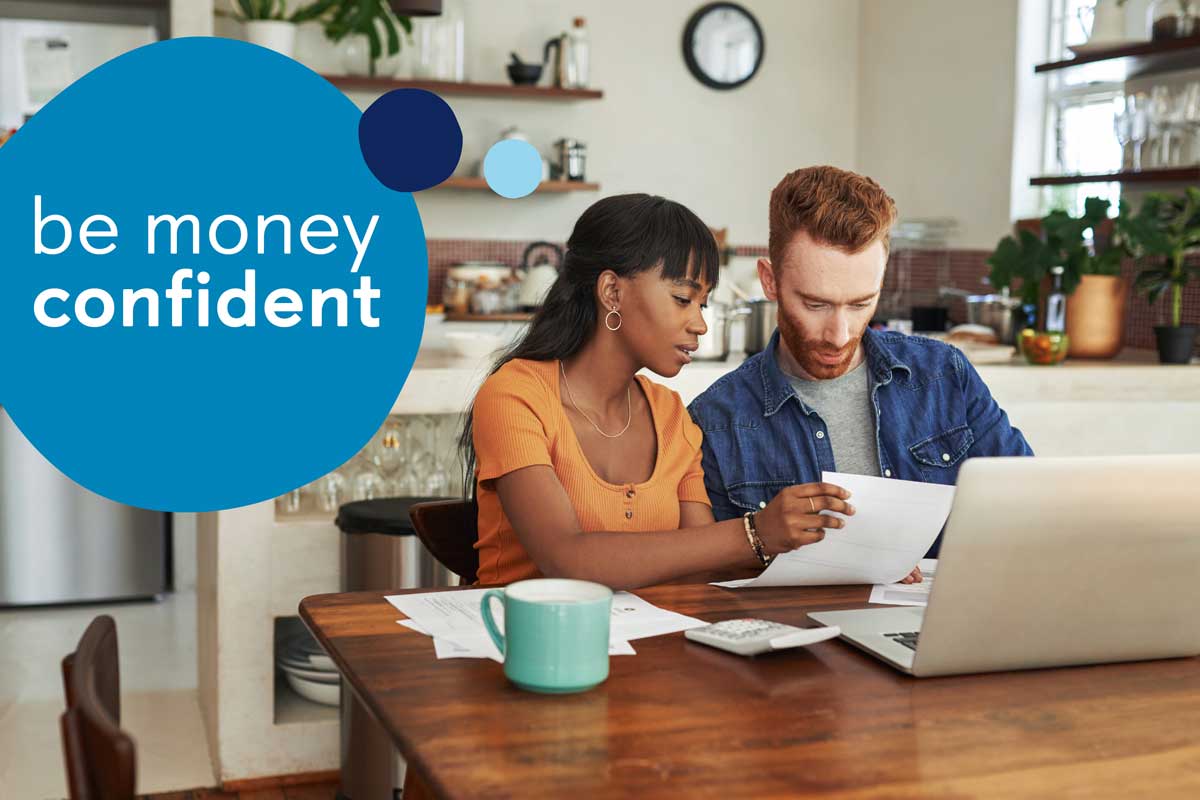Together we can end domestic abuse.
Is debt keeping you awake at night? You are not alone. While borrowing can be a useful financial tool, according to the National Audit Office 8.3 million people, or one in six of us, are struggling with problem debt. That means they can't make repayments or cover household bills.
If that sounds like you, it is time to get help. Having a debt problem does not necessarily mean you have been spending irresponsibly, and the current climate means more people are struggling. The October 2020 TSB Money Confidence Survey found two in five people are in debt due to normal living expenses.
And the financial implications of the Covid-19 pandemic, such as a loss of income, job loss or furlough, may have pushed some people further into debt, or forced them into unexpected debt.
Whatever the cause, these five simple steps will help you take back control, and get your financial situation on track.
STEP ONE - BE REALISTIC ABOUT THE SITUATIONThe first step to dealing with debt is to be honest with yourself. It's human nature to bury our heads in the sand when faced with a difficult situation. So if you've been letting unopened bills pile up, you're not alone.
But now is the time to face facts and know what you owe.
Make a list of every debt you have, the outstanding balance, monthly repayments and how long loans and credit agreements have to run.
Take a deep breath and add them all up - it may be a shock to see the number in black and white, but you've taken the crucial first step towards getting your finances back on track.
STEP TWO - PLANNING PAYSIt’s important to know which debts to target first. But before you make a payment, make a budget.
Write down your income and everything you spend. Remember every month is different, so factor in things like birthday presents and annual costs such as a car service and MOT. If you are self-employed, then you should also consider your tax liabilities.
Now you can see where you can make savings, and how much you can put towards paying off debt.
Make sure you pay essential outgoings, such as mortgage, rent or utility arrears, council tax and other taxes if you are self-employed, and child maintenance first. Then focus on paying off debts with the highest interest rates, making sure you keep up with minimum repayments on the others.
Following a plan can stop debt keeping you awake - according to the October 2020 TSB Money Confidence Survey, one in two of us loses sleep over how much we owe.
STEP THREE - TRY TO PAY MORE THAN THE BARE MINIMUMIf you are able to, paying a fixed amount rather than the minimum payment on a credit card could clear the debt years earlier, which could save you thousands in interest payments.
According to the Financial Conduct Authority, the minimum payment on a balance of £3,000 with an APR of 19% would start at £74 per month.
But the minimum payment reduces along with the balance, so assuming no further spending on the card, it would take 27 years and seven months to pay off, and you would pay interest of £4,192.
If you fixed your repayment at £74 per month, you would clear the balance in five years and two months, paying £1,576 in interest.
If you could stretch to £108 per month, the balance would be cleared in three years, with £879 interest.
STEP FOUR - CONSIDER CONSOLIDATIONIt can make sense to consolidate debts into one bank loan, with a single monthly payment.
As well as making it easier to keep track of your payments, you could pay less interest:
For example, the average rate on an unsecured personal loan of £5,000 over three years is 7.2%, compared to an average overdraft rate of 31.8%, according to figures from The Money Charity in August 2020. However, the rates on debt consolidation loans may be higher than a standard personal loan, especially if you have a poor credit rating.
Check very carefully before you proceed and make sure the rate you are actually offered is lower than your existing debts, and that you can afford the repayments.
You should also check the total amount payable over the full term of the loan, as it could be higher if you are making repayments over a longer period.
And be aware that this is not a straight-forward option. You should get free debt advice and only consider a debt consolidation loan if it will clear all of your outstanding balances, and you will not continue to borrow on credit cards.
STEP FIVE - GET HELPIf you find you have more money going out than coming in, and can't see a way of redressing the balance by reducing your outgoings, then don't panic - help is out there.Don’t be afraid to speak to your bank - they understand customers may have debt problems and could be able to help.
The Citizens Advice Bureau offers non-judgmental debt advice and information about benefits that may be available. Debt charity StepChange can help you assess your situation, and the next steps you should take. Other free debt advice services include PayPlan, National Debtline, the Money Advice Service and the Debt Advice Foundation.
The Money Advice Service found that 65% of people who received regulated debt advice were repaying their debts or had repaid them in full within three to six months.
nationaldebtline.org
payplan.com
debtadvicefoundation.org
stepchange.org
Citizensadvice.org.uk
moneyadviceservice.org.uk
Working closely with third party organisations such as Citizens Advice Bureau, TSB are committed to offering everyone the help and support they need to find a way forward with debt and ensure people feel more confident with their money, every day.
Related articles

